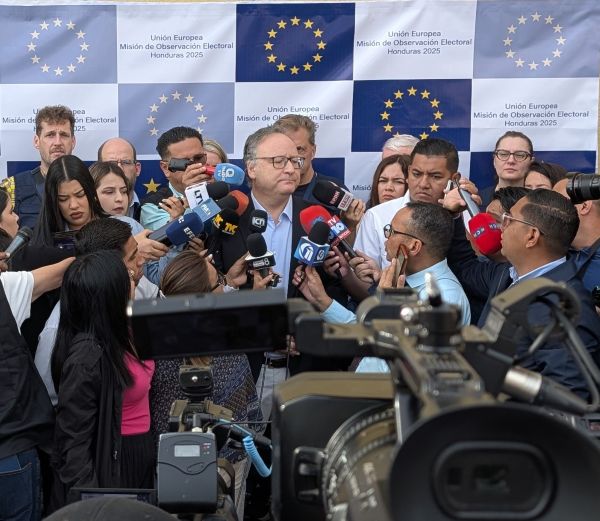The European Union has initiated an Election Observation Mission (EU EOM) in response to an invitation from the Government of the Republic of Honduras and the National Electoral Council (CNE) for the forthcoming general elections, scheduled for 30 November 2025. The Mission arrived in Honduras on 11 October and will remain in the country until the electoral process is fully completed.
The primary objective of the EU EOM is to carry out a comprehensive observation of all aspects of the electoral process, in accordance with international and regional treaties on democratic elections to which Honduras is a signatory, as well as the nation’s own legal framework.
“The European Union’s methodology is based on long-term observation and the principles of impartiality, transparency, independence and non-interference in the process, which clearly set the guidelines for our work,” said the chief of the Mission, MEP Francisco Assis, at a press conference in Tegucigalpa on 27 October.
“Our Mission is independent of both the institutions of the European Union and its Member States,” he added.
The EOM will not make any statements regarding the election results. Instead, it will evaluate the entire electoral process from a technical perspective. This includes examining how each stage of the election was conducted and the level of confidence it instilled in the electorate. On 28 October, EOM deployed 32 long-term observers in the Honduran departments.
“Our observers will meet with electoral authorities at the departmental and municipal levels, as well as with representatives of political parties, candidates and members of civil society involved in the electoral process, and will send us regular reports on their work,” the head of EOM added.
All EU election observers adhere strictly to a comprehensive code of conduct that upholds their neutrality and impartiality. On election day, the Mission will encompass approximately 120 observers from European Union member states, along with representatives from Norway and Canada. Their responsibilities will include monitoring the voting process, overseeing vote counting, and ensuring the accurate transmission of results.
Two days after the election, the Mission will hold a press conference in Tegucigalpa to present a preliminary statement highlighting its initial observations and conclusions. The Mission will also continue to assess the post-election context. Furthermore, a final report will be compiled detailing technical findings and providing recommendations to enhance future electoral processes, which will be presented in Honduras.

